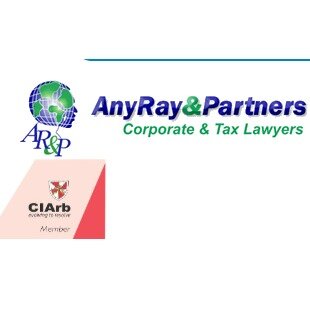Best Asylum Lawyers in Ivory Coast
Share your needs with us, get contacted by law firms.
Free. Takes 2 min.
Or refine your search by selecting a city:
List of the best lawyers in Ivory Coast
About Asylum Law in Ivory Coast:
Asylum in Ivory Coast is governed by the Refugee Law of 2014 which provides protection to individuals fleeing persecution in their home countries. Asylum seekers must prove a well-founded fear of persecution based on race, religion, nationality, political opinion, or membership in a particular social group to be granted refugee status.
Why You May Need a Lawyer:
Seeking asylum can be a complex legal process that requires evidence and documentation to support your claim. A lawyer can help you navigate the asylum application process, gather the necessary evidence, and represent you in asylum interviews and hearings. Additionally, a lawyer can provide legal advice on your rights and options under Ivory Coast's asylum laws.
Local Laws Overview:
Key aspects of Ivory Coast's asylum laws include the right to seek asylum regardless of immigration status, the prohibition of refoulement (returning individuals to countries where they may face persecution), and access to legal representation during the asylum process. Asylum seekers have the right to appeal negative decisions and may be eligible for temporary protection in the meantime.
Frequently Asked Questions:
1. Who is eligible to apply for asylum in Ivory Coast?
Any individual who fears persecution in their home country based on race, religion, nationality, political opinion, or membership in a particular social group can apply for asylum in Ivory Coast.
2. What documents do I need to apply for asylum?
As an asylum seeker in Ivory Coast, you will need to provide a valid passport or identification document, evidence of persecution in your home country, and any other relevant documentation to support your asylum claim.
3. Can I work in Ivory Coast while my asylum application is pending?
Asylum seekers in Ivory Coast are not allowed to work until they receive refugee status, but they may be eligible for temporary protection and assistance during the asylum process.
4. How long does the asylum process take in Ivory Coast?
The asylum process in Ivory Coast typically takes several months to complete, including interviews, hearings, and appeals. The length of the process may vary based on individual circumstances and the complexity of the case.
5. Can I appeal a negative asylum decision?
Yes, asylum seekers in Ivory Coast have the right to appeal negative decisions within a specified timeframe. It is recommended to seek legal advice from a lawyer to prepare and submit your appeal effectively.
6. Do I need a lawyer to apply for asylum in Ivory Coast?
While not required, having a lawyer can significantly improve your chances of a successful asylum application by providing legal guidance, representation, and advocacy throughout the asylum process.
7. How can I find a reputable asylum lawyer in Ivory Coast?
You can seek recommendations from refugee organizations, legal aid clinics, or contact the Ivory Coast Bar Association for referrals to reputable asylum lawyers who specialize in refugee law.
8. What rights do refugees have in Ivory Coast?
Refugees in Ivory Coast have the right to work, access education and healthcare services, freedom of movement, and protection against refoulement. They are entitled to the same rights and freedoms as Ivorian citizens, except for the right to vote.
9. Can I travel outside Ivory Coast while my asylum application is pending?
Asylum seekers in Ivory Coast are generally advised against traveling outside the country while their asylum application is pending, as it may impact their refugee status and undermine their asylum claim.
10. What support services are available for refugees in Ivory Coast?
Refugees in Ivory Coast may access support services such as shelter, food, healthcare, education, vocational training, and legal assistance provided by government agencies, international organizations, and non-profit refugee organizations.
Additional Resources:
For more information on asylum in Ivory Coast, you can contact the Ivory Coast National Commission for Refugees (CONAREF) or the United Nations High Commissioner for Refugees (UNHCR) office in Ivory Coast for assistance and guidance on asylum procedures.
Next Steps:
If you need legal assistance with asylum in Ivory Coast, it is advisable to consult with a qualified asylum lawyer who can assess your case, provide legal advice, and represent you throughout the asylum process. Contact local refugee organizations or legal aid clinics for referrals to reputable asylum lawyers to assist you with your asylum application.
Lawzana helps you find the best lawyers and law firms in Ivory Coast through a curated and pre-screened list of qualified legal professionals. Our platform offers rankings and detailed profiles of attorneys and law firms, allowing you to compare based on practice areas, including Asylum, experience, and client feedback.
Each profile includes a description of the firm's areas of practice, client reviews, team members and partners, year of establishment, spoken languages, office locations, contact information, social media presence, and any published articles or resources. Most firms on our platform speak English and are experienced in both local and international legal matters.
Get a quote from top-rated law firms in Ivory Coast — quickly, securely, and without unnecessary hassle.
Disclaimer:
The information provided on this page is for general informational purposes only and does not constitute legal advice. While we strive to ensure the accuracy and relevance of the content, legal information may change over time, and interpretations of the law can vary. You should always consult with a qualified legal professional for advice specific to your situation.
We disclaim all liability for actions taken or not taken based on the content of this page. If you believe any information is incorrect or outdated, please contact us, and we will review and update it where appropriate.
Browse asylum law firms by city in Ivory Coast
Refine your search by selecting a city.








